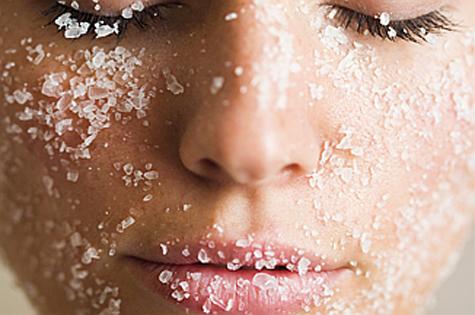Yes, I work in the beauty industry. But no, I'm not trying to sell you something. In fact, in all of my pieces I've written for Motherpedia, I've steered away from recommending specific products because I don't want readers to think I am trying to sell you something.
But if there's one beauty regime you should try to stick to - besides daily cleansing and moisturising of course - it's exfoliation. Regular exfoliation is one of the things that can help transform your skin to a healthier look. (If I was a saleswoman, I'd also say "younger look" but I can't promise that!).
The skin is the largest organ of the body and acts as a protective barrier for everything that lies underneath – including muscles, blood vessels, bone, etc. As the body’s first line of defence, the skin can take on quite a bit of punishment from the environment, leaving it dry and dull.
When you exfoliate, you are removing the dead skin cells from the upper layer of the skin, revealing the younger, healthy cells underneath and encouraging new skin growth.
Here are the reasons why you should incorporate regular exfoliation into your skincare routine:
- It reduces the appearance of fine lines and wrinkles (this may even help you look younger!)
- Skin appears brighter, fresher and healthier after exfoliating
- Exfoliating prior to using a treatment product allows the active ingredients to better penetrate the skin
- It helps to unclog pores, which can prevent acne breakouts
- It speeds up the cell renewal process.
There are many ways to exfoliate, including scrubs, masks, brushes and microdermabrasion devices.
Since everyone’s skin is different, with varying sensitivity, I recommend starting with an over-the-counter scrub or mask first and monitoring how your skin reacts. Once you know your skin isn’t highly sensitive to exfoliating, you may wish to move on to trying other exfoliating tools and professional treatments - but this really isn't necessary. There are some very good over-the-counter products available, including at the supermarket or chemist.
If you really want to make an impact, include exfoliation in your regular skincare regimen one to three times a week. But as with any kind of skin treatment, always take note of your skin’s reactions when you exfoliate. If you experience unusual redness or irritation, don't give up on it - simply try a more gentle product.
And don’t forget to use liberal amounts of your favourite moisturiser and sunscreen following exfoliation.
When you remove the top layer of dead skin cells, your skin will be more sensitive to environmental exposure such as sun, pollution and dry air, so protection from the elements is very important. Most moisturisers come with an inbuilt SPF with them and this is what I'd recommend.



















__small.png)










